
Nikki Giovanni, a titan of American letters whose verse vibrantly articulated the complexities and joys of Black life, passed away on Monday in Blacksburg, Va., at the age of 81. Her death, attributed to complications of lung cancer, marks the end of an era defined by her charismatic presence, her iconoclastic spirit, and an unwavering commitment to truth expressed through poetry, activism, children’s literature, and academia. Giovanni was not merely a poet; she was a public intellectual who toured the nation, appeared regularly on television, and captivated audiences with a unique blend of jazz-inflected cadence and the timing of a seasoned comedian or a passionate Baptist preacher.
Throughout her illustrious career, Ms. Giovanni tackled monumental themes with an irresistible and sensuous grace. Her work explored race, politics, gender, sex, and love, becoming a guiding light for generations seeking reflection and affirmation. Her ability to command a stage, whether in a university hall or a penitentiary, cemented her reputation as a riveting performer, drawing crowds eager to hear her distinctive voice articulate the unspoken sentiments of a people and a nation.
Her passing leaves an indelible void in the cultural landscape, yet her prolific output—more than 30 books, including bestsellers and works for children—ensures that her voice will continue to resonate. She embodied a rare blend of fiercely intelligent confidence, never suffering fools, and always advocating for an authentic, self-determined existence. As we reflect on her monumental contributions, it becomes clear that Nikki Giovanni didn’t just write about Black life; she helped shape its narrative with courage, conviction, and poetic brilliance.
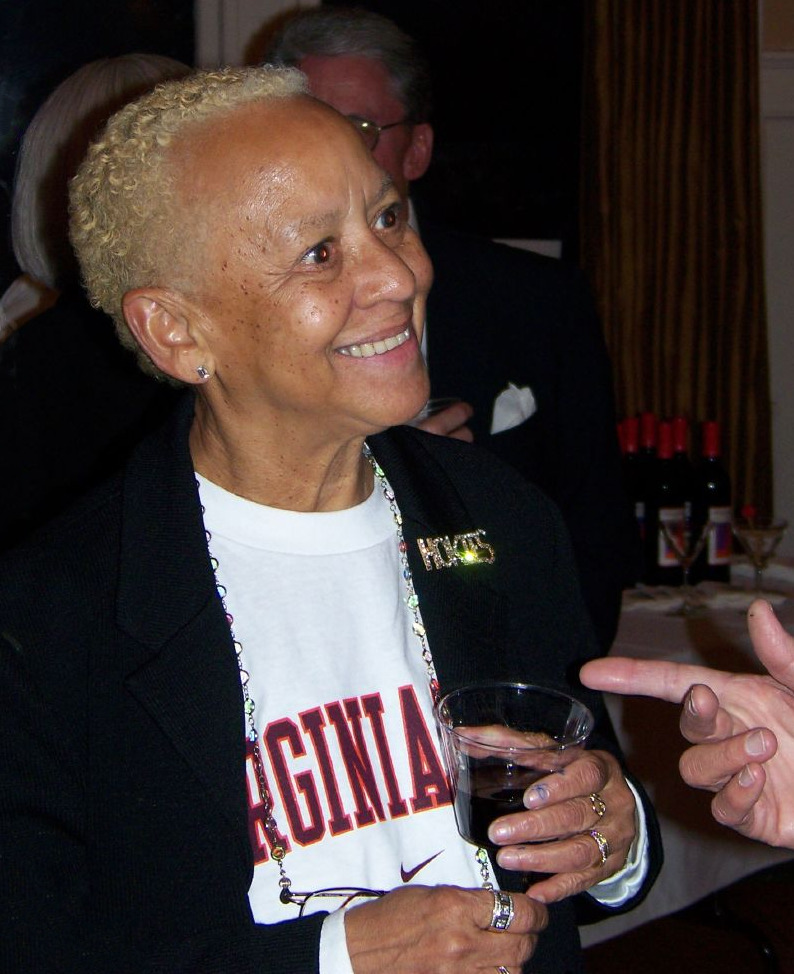
1. **Nikki Giovanni: A Life Forged in Verse and Activism**Yolande Cornelia Giovanni Jr., known universally as Nikki, lived a life that was, in itself, a powerful testament to her convictions. Born on June 7, 1943, in Knoxville, Tenn., her journey was one of relentless self-definition, moving from a childhood marked by struggle to becoming a universally celebrated literary figure. Her death at 81, from complications of lung cancer, brought into sharp focus the immense breadth of her influence, not just as a writer but as a cultural force.
Ms. Giovanni was much more than a poet; she was a multifaceted intellectual whose work transcended genres and platforms. Her roles as an activist, a children’s book author, and a professor highlighted her diverse engagement with society. The themes she fearlessly explored—race, politics, gender, sex, and love—were handled with a unique blend of directness and lyrical beauty, making her work both deeply personal and universally resonant.
Her public intellectual persona was as compelling as her written word. She was a familiar face on television and a constant presence on the lecture circuit, embodying the spirit of a true cultural commentator. This visibility allowed her to extend the reach of her poetry and ideas far beyond traditional literary circles, solidifying her place as a pivotal figure who consistently challenged and engaged with the evolving dialogues around Black identity and experience.
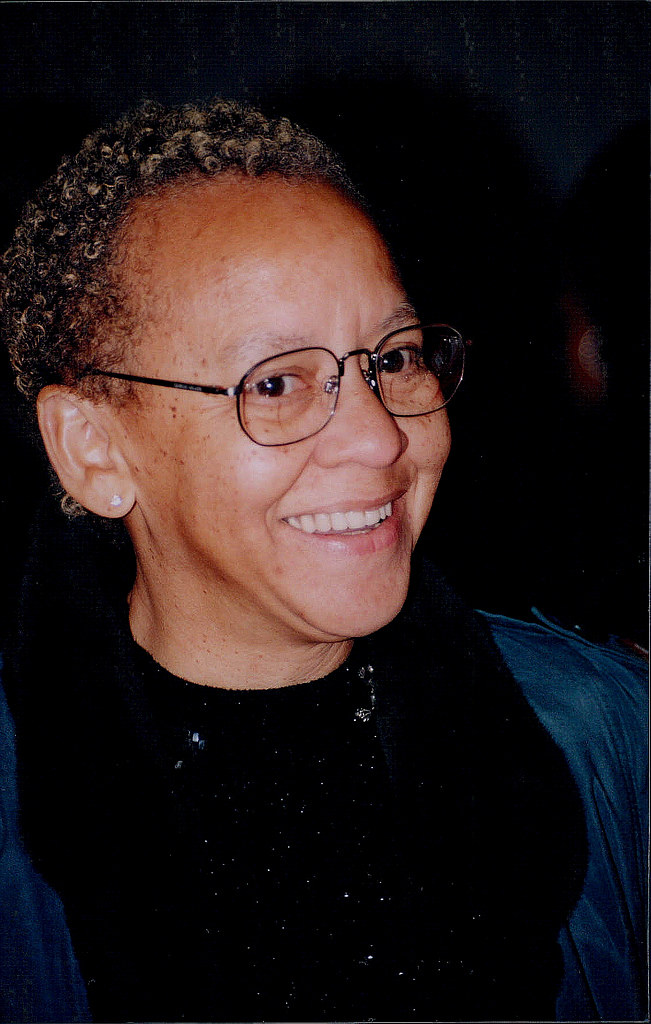
2. **The Fiery Heart of the Black Arts Movement**Nikki Giovanni emerged as a prolific star of the Black Arts Movement, a powerful wave of Black nationalism that surged during the civil rights era. This movement, propelled by luminaries like herself, John Oliver Killens, LeRoi Jones (Amiri Baraka), Audre Lorde, Ntozake Shange, and Sonia Sanchez, sought to create art that reflected and shaped Black consciousness. Giovanni’s contributions were central to its energy and direction, defining a critical period in African American cultural history.
However, her involvement was not without its complexities. Like many women within the movement, Ms. Giovanni found herself confounded by the prevailing machismo that often dominated its discourse and structures. This experience shaped her perspective and, paradoxically, strengthened her independent voice, allowing her to critique and transcend certain limitations of the movement while remaining deeply committed to its core ideals of Black liberation and self-expression.
Despite these internal tensions, Giovanni remained a celebrity poet and a significant public intellectual, carving out a space for herself that was both within and independent of the Black Arts Movement. Her ability to connect with diverse audiences, from college students to prison inmates, underscored her unique position. She demonstrated that art could be both deeply political and widely accessible, serving as a bridge between high culture and grassroots activism.
Read more about: The Beat Goes On: 12 Artists and Genres That Defined the Revolutionary 80s Music Scene
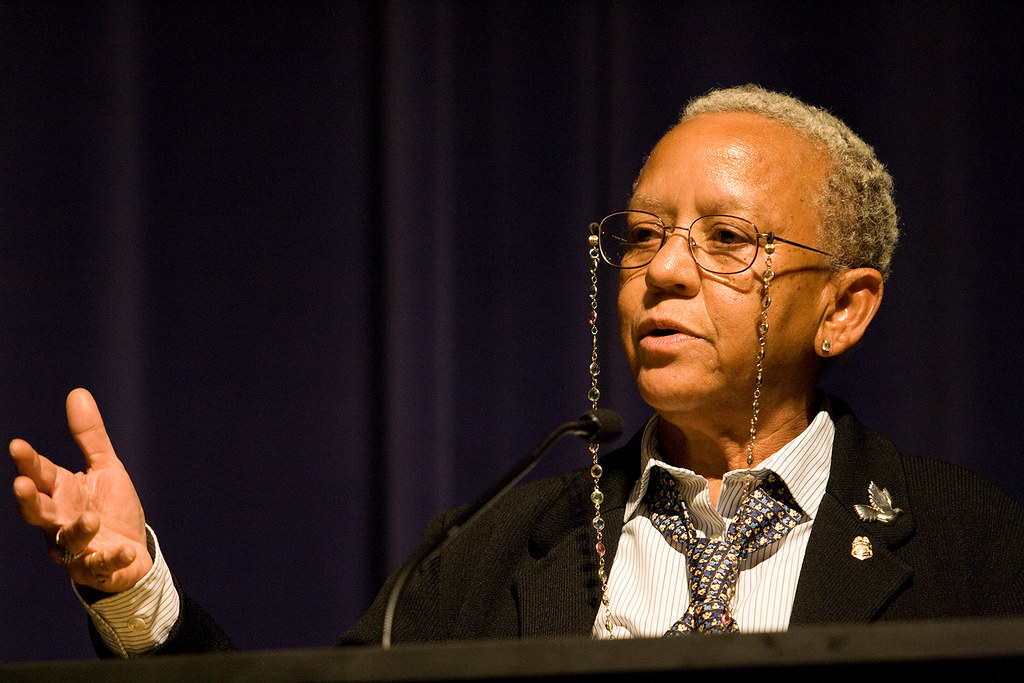
3. **A Stage Where Words Soared: Her Iconic Performances**Nikki Giovanni possessed an undeniable charisma that transformed poetry readings into captivating, electrifying events. Her diminutive stature, often pointed out by reporters at 105 pounds, belied the immense power and presence she commanded on stage. Her performances were not simply recitations; they were experiences, infused with the rhythms of jazz and blues music she adored, delivered with the impeccable timing of a comedian and the passionate conviction of a Baptist preacher.
Her ability to draw and engage large audiences was legendary. In 1972, at just 29 years old, Ms. Giovanni made history by selling out all 1,000-plus seats at Lincoln Center’s Alice Tully Hall. This momentous event saw her reading her poems alongside the soulful gospel music of the New York Community Choir, creating an unforgettable fusion of spoken word and song that resonated deeply with attendees.
The following year, for her 30th birthday, she ascended to an even grander stage, selling out all 3,000 seats at Philharmonic Hall (now David Geffen Hall). This celebratory event featured collaborations with musical icons Melba Moore and Wilson Pickett, who joined the New York Community Choir in performing gospel numbers. The audience, swept up in the spirit, participated with gusto, especially when Giovanni delivered her best-known poems, turning a poetry reading into a communal, joyous affirmation.
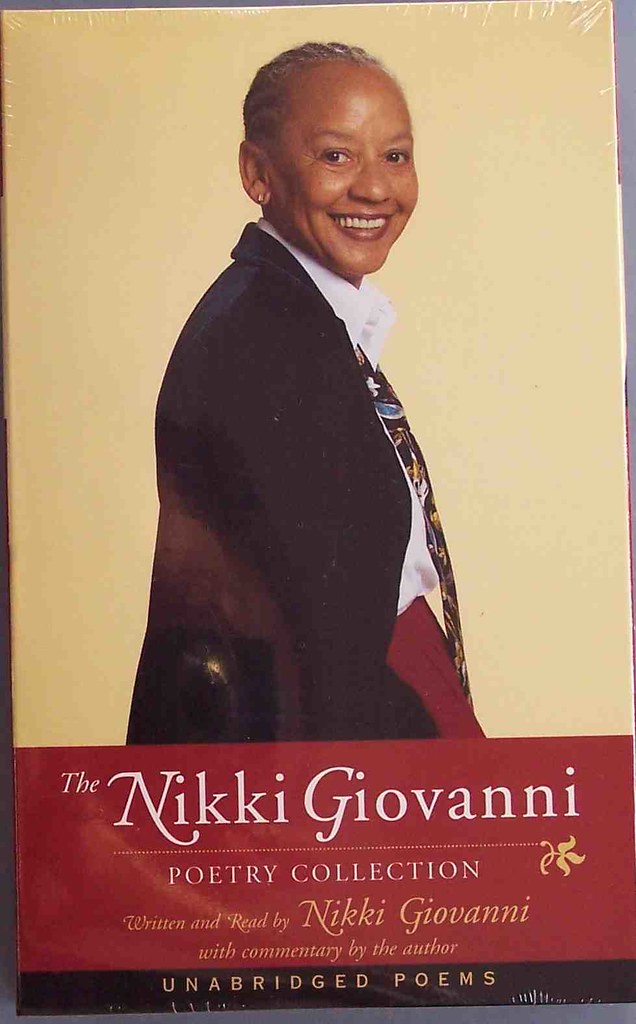
4. **Crafting Identity: The Power of “Ego-Tripping” and Early Militant Works**Among Nikki Giovanni’s most enduring contributions to American literature are poems that powerfully articulate Black female agency and confront the searing injustices of her time. “Ego-Tripping,” a stirring paean to Black women, stands as a testament to this power. Generations of Black girls have performed its triumphant lines, which begin with the bold declaration, “I was born in the congo / I walked to the fertile crescent and built / the sphinx,” and culminate in the assertion of divine self-worth: “I am so perfect so divine so ethereal so surreal / I cannot be comprehended / except by my permission / I mean … I … can fly / Like a bird in the sky …”.
Giovanni’s early poetry was characterized by its boldly militant stance, directly addressing the profound horrors that galvanized the civil rights movement. She wrote with raw indignation about the murders of Emmett Till, the four Black girls tragically killed in the Birmingham church bombing, and the assassination of the Rev. Dr. Martin Luther King Jr. These works were not just commentary; they were defiant acts of witness, challenging the conscience of a nation.
Facing a lack of interest in what was then termed “militant” poetry by a Black girl, Ms. Giovanni, demonstrating her characteristic self-reliance, took matters into her own hands. “I formed a company and published myself,” she declared in her memoir, “Gemini.” This entrepreneurial spirit led to the self-publication of her first two books, “Black Feeling Black Talk” and “Black Judgment,” both released in 1968, laying the groundwork for a prolific and independent literary career.

5. **“Gemini”: An Autobiographical Statement of Unyielding Truth**In 1971, Nikki Giovanni published her memoir, “Gemini: An Extended Autobiographical Statement on My First Twenty-Five Years of Being a Black Poet,” offering readers an intimate look into the formative experiences that shaped her worldview and artistry. The book quickly became a crucial text for understanding her intellectual framework, revealing a fiercely intelligent mind that never lacked confidence and consistently challenged conventional wisdom, even in her youth as a fan of Ayn Rand, an apostle of individualism.
Within the pages of “Gemini,” Giovanni bravely articulated the contradictions and false pieties she observed within the Black Power movement. Her reflections were unsparing, providing a nuanced perspective that often diverged from the dominant narratives of the time. This willingness to critique from within underscored her commitment to authenticity, even when it meant challenging the very movements she was a part of.
Furthermore, the memoir delves into her personal journey, chronicling her scrappiness as a child and her evolving, often ambivalent, perspectives on gender relations. She openly questioned societal norms, writing, “Maybe they have a different thing going,” regarding men and women living together, suggesting a more fluid and less prescriptive approach to human connection. Her poem “Housecleaning” further captured this sentiment, metaphorically expressing her need to remove elements from her life that no longer served her truth, declaring, “i find / i must remove you / from my life.” This candid exploration cemented “Gemini” as a powerful statement of self-possession and intellectual independence.
Nikki Giovanni’s journey was one defined by unwavering intellectual curiosity, a fierce commitment to self-determination, and a profound capacity for love, both personal and communal. Her life beyond the page was as rich and influential as her poetry, marked by groundbreaking academic pursuits, a pioneering approach to motherhood, and an enduring presence in public discourse. As we continue to honor her legacy, we turn to the personal chapters that illuminated her path, from her challenging beginnings to her celebrated tenure as an educator and her deep, supportive relationships.
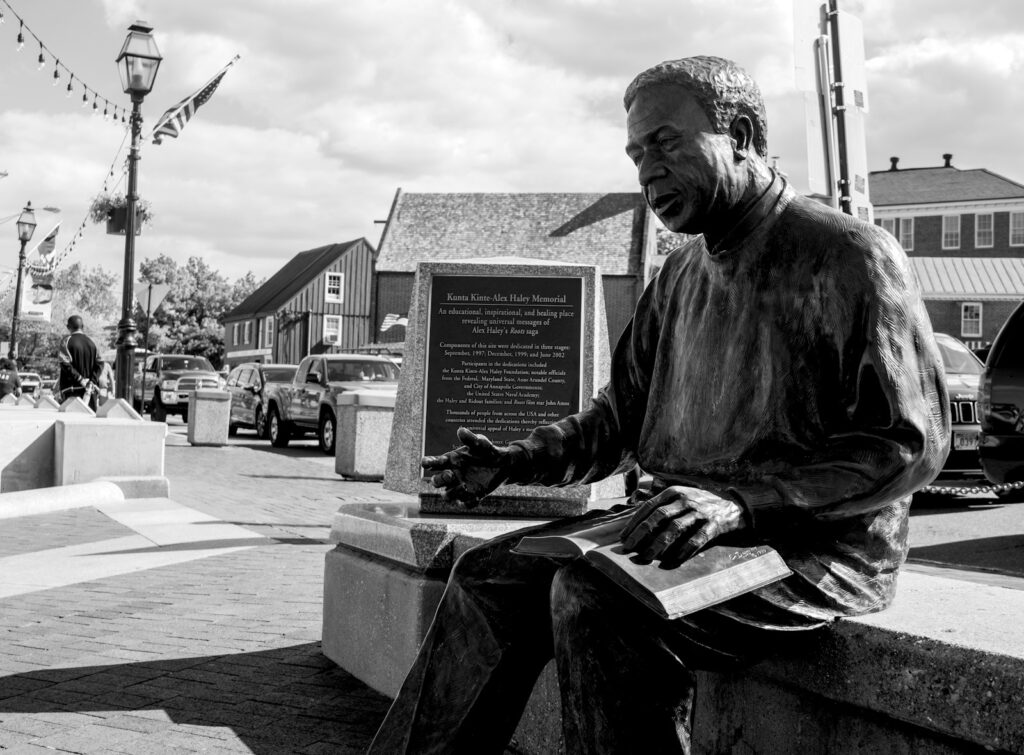
6. **The Formative Years: An Unyielding Spirit and Academic Pursuits**Yolande Cornelia Giovanni Jr.’s early life was a crucible that forged the resilient spirit she would carry throughout her career. Born on June 7, 1943, in Knoxville, Tenn., to Yolande (Watson) Giovanni and Jones Giovanni, known as Gus, her family’s move to Cincinnati saw her parents working as house parents in a school for Black boys, initially earning only one salary. This period was marked by her father’s abusive behavior towards her mother, which Nikki Giovanni recounted as deeply enraging, especially her mother’s acceptance of it. At the tender age of 15, driven by a profound sense of self-preservation, she made the pivotal decision to leave Cincinnati and live with her grandparents in Knoxville, asserting later, “I was either going to kill him or leave.”
Her academic journey, much like her personal life, was characterized by an independent streak and a refusal to conform. She graduated early from Austin High School, where her grandfather taught Latin, before enrolling at Fisk University, a historically Black college in Nashville. There, her refusal to adhere to conventional expectations led to her being thrown out for leaving campus without permission and for protesting other campus rules, signaling her early defiance of institutional norms. She even found herself an “odd fit” among Fisk’s sorority sisters, having no aspirations of becoming a debutante, a sentiment she later immortalized in a poem.
However, a return to Fisk saw a changed campus climate, allowing her to thrive. She studied under John Oliver Killens, a founder of the Harlem Writers Guild, and actively helped restart a chapter of the Student Non-Violent Coordinating Committee (SNCC), where her political and artistic consciousness truly began to blossom. She earned her bachelor’s degree in history with honors in 1967, a testament to her intellectual prowess. Although she briefly attended the University of Pennsylvania’s School of Social Work on a Ford fellowship and later Columbia University’s School of Fine Arts with a National Endowment for the Arts fellowship, she ultimately left both programs, choosing instead to dedicate herself fully to writing. Her resolve led her to self-publish her first two books, “Black Feeling Black Talk” and “Black Judgment,” in 1968, after facing disinterest in her “militant” poetry. To ensure her beloved grandmother and other church ladies could appreciate her work, she even recorded an album, “Truth is on its Way” (1971), blending her poetry with gospel music.
Read more about: Jack Betts, Versatile Actor from Broadway to ‘Spider-Man’ and Spaghetti Westerns, Dies at 96

7. **A Redefined Motherhood and Candid Conversations on National Television**Nikki Giovanni boldly redefined traditional notions of family and womanhood with the birth of her son, Thomas, in 1969. At 25, she made a fiercely independent choice, stating with vehemence to Ebony magazine, “I had a baby at 25 because I wanted to have a baby and I could afford to have a baby. I didn’t get married because I didn’t want to get married and I could afford to not get married.” She never publicly identified the father, underscoring her commitment to a self-determined path free from societal expectations. This personal decision reflected the same spirit of autonomy that permeated her poetry and activism, demonstrating a life lived on her own terms.
To support herself and her son, Giovanni embraced the lecture circuit, becoming a familiar and influential presence across the nation. Her public profile significantly broadened through regular appearances on “Soul!,” the groundbreaking Black culture program that aired on public television from 1967 to 1972. This platform allowed her to connect with wider audiences, solidifying her status not just as a poet, but as a compelling public intellectual whose voice resonated deeply within the cultural landscape.
One of the most memorable and impactful segments on “Soul!” was her captivating two-hour interview with her hero, James Baldwin, filmed in London and broadcast as a two-part special in 1971. The New Yorker described this exchange as “astonishing,” highlighting how “Two of the most important artist-intellectuals of the twentieth century were engaged in intimate communion on national television.” During this profound conversation, Giovanni, then 28, candidly raised deeply personal yet universally resonant questions about the dynamics within Black families, particularly regarding fathers.
She bravely confronted the painful reality of her own father, whom she saw as “emblematic of so many Black men,” asking Baldwin, “What to do about a man who is mistreated in the world and comes home and brutalizes his wife? Where did that leave his daughter?” This led to a raw confession: “I’m afraid of Black men,” adding, “It’s a cycle and it’s unfortunate because I need love.” Her vulnerability resonated with many, culminating in her poignant query: “There has to be a way to do what we do and survive, which is what seems to me to be missing.” Baldwin’s tender and affirming response, “Sweetheart. Sweetheart. Our ancestors taught us how to do that,” offered both solace and a call to ancestral wisdom, immortalizing a conversation that continues to inspire and challenge viewers, with parts of their exchange featured in the 2023 HBO documentary “Going to Mars: The Nikki Giovanni Project.”

8. **A Dedicated Academic Career at Virginia Tech and a Community’s Healing**Beyond her prolific writing and public appearances, Nikki Giovanni dedicated a significant portion of her life to academia, shaping minds and inspiring future generations. After holding teaching positions at Rutgers University and Queens College, a new chapter began when Virginia C. Fowler, then the associate head of the English department at Virginia Tech in Blacksburg, recruited her in 1987 to be a visiting professor. This move marked the beginning of a long and distinguished tenure that would see Giovanni become a beloved and influential figure within the university community.
A few years after her arrival, Ms. Giovanni earned tenure, a testament to her scholarly contributions and her profound impact on students and colleagues alike. Her presence at Virginia Tech transcended the classroom; she became an integral part of the university’s fabric, known for her engaging teaching style, her candid discussions, and her unwavering commitment to intellectual rigor. Her influence was not merely confined to her English department, but permeated the broader campus culture, enriching the academic experience for countless students.
However, her academic career was marked by a deeply traumatic event in 2007, when a senior at Virginia Tech, Seung-Hui Cho, fatally shot 32 people and himself. This tragedy held a particularly somber footnote for Ms. Giovanni, as Cho had been her student. She had previously objected to his behavior in class, which had frightened her other students, and had asked him to either stop or leave. When he declined, he was subsequently taught privately by the department head. In the wake of this devastating event, Ms. Giovanni emerged as a voice of strength and solace, delivering the closing remarks at a convocation to honor the victims. She recited a powerful poem she wrote for the occasion, “We Are Virginia Tech,” offering a message of both resilience and aspiration: “We are better than we think,” she affirmed, “but not quite what we want to be.” Her words became a beacon of hope and unity for a grieving community.

9. **A Profound Partnership: Virginia C. Fowler, Scholar and Wife**The recruitment of Nikki Giovanni to Virginia Tech by Virginia C. Fowler in 1987 not only marked a new academic phase for the poet but also initiated a deeply significant personal chapter. From that point forward, Ms. Giovanni and Ms. Fowler became a couple, their lives intertwining in a partnership that spanned decades, rooted in mutual respect, intellectual companionship, and profound affection. This relationship provided Giovanni with a steadfast foundation, a source of unwavering support that was both personal and professional.
Virginia C. Fowler became not only Giovanni’s life partner but also a dedicated scholar of her work. She took on the crucial role of editing Giovanni’s collections, meticulously curating and preserving her literary output for future generations. Fowler’s expertise culminated in her authorship of Giovanni’s biography, “Nikki Giovanni” (2013), a comprehensive and intimate portrait of the poet’s life and artistry. This collaboration underscored the depth of their connection, highlighting how their lives and careers were intrinsically woven together.
In 2016, Ms. Giovanni and Ms. Fowler formalized their enduring commitment, marrying after nearly three decades together. Both retired in 2022, marking the end of their illustrious academic careers and beginning a new phase of their shared life. Ms. Giovanni eloquently articulated the essence of their bond to Elizabeth Harris of The New York Times in 2020, referring to Ms. Fowler as her “bench.” She explained, “Everybody needs a bench, and in order to get a bench, you have to be one. I could say love, but you get tired of hearing about love.” This beautiful metaphor captured the grounding, supportive nature of their relationship, emphasizing its foundational role in Giovanni’s life and work.

10. **Enduring Recognition: Accolades, Best-Sellers, and a Timeless Voice**Nikki Giovanni’s unparalleled contributions to American literature and culture were met with a cascade of honors and accolades throughout her lifetime, cementing her status as an iconic figure. Her tireless advocacy and artistic brilliance earned her seven N.A.A.C.P. awards, recognizing her significant impact on civil rights and Black advancement. Furthermore, her intellectual breadth and influence were acknowledged with an astounding 31 honorary doctorates from various institutions, a testament to the respect she commanded across academic and cultural spheres.
Beyond the literary world, her unique legacy was even recognized by the scientific community, as a fan, scientist Robert James Baker, named a species of bat after her: the Micronycteris giovanniae. This unusual honor speaks to the widespread admiration and distinctive mark Giovanni left on diverse fields. As an author, her prolific output included more than 30 books, many of which were cherished by children, and three that soared to become bestsellers, reaching a broad and diverse readership. Even in her later years, her creative spirit remained vibrant, with a new volume, “The New Book: Poems, Letters, Blurbs, and Things,” expected to be published the year following her passing.
Ms. Giovanni’s personal life also saw growth and continuation. She is survived by her son, Thomas, and a granddaughter, in addition to her wife, Ms. Fowler, ensuring her familial legacy endures. In her reflections near the end of her life, shared with The New York Times in 2020, she expressed profound admiration for younger generations, particularly in the context of movements like Black Lives Matter. “I really like what the young people are doing,” she remarked, adding a guiding philosophy for her role: “my job is to be sure to get out of their way, but also let them know, if it means anything to them, that I’m proud of them.” It was a powerful message of intergenerational solidarity and continued hope for progress.
Reflecting on her life with characteristic wisdom and grace, Ms. Giovanni offered a poignant recommendation: “I recommend old age.” She elaborated on this sentiment, stating, “There’s just nothing as wonderful as knowing you have done your job.” This final thought encapsulates a life lived with purpose, passion, and an unwavering commitment to truth, beauty, and justice. Nikki Giovanni did not just do her job; she transcended it, leaving behind a body of work and a legacy of activism that will continue to resonate, inspire, and challenge for generations to come, reminding us all of the profound power of a voice that fearlessly spoke its truth.



